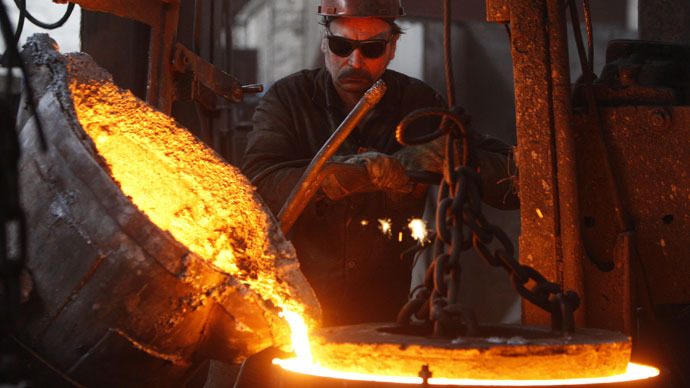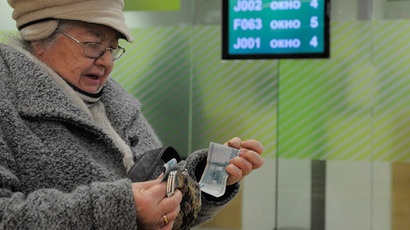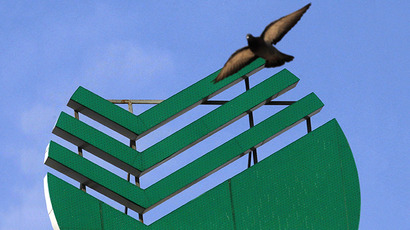Russia to become 'next Greece’ with slowing economic growth - Renaissance Capital

The Russian economy will not be able to grow faster than 2 percent per year in the coming decade and might become another Greece, says one of Russia’s leading investment banking firms Renaissance Capital.
This would mean the government increasing national debt just like it was in Greece.
The slowing economic growth in Russia to 1.6 percent in the first quarter of 2013 has been connected to various factors including falling investment, private consumption and weak exterior demand, Vedomosti daily reports.
However according to Ivan Chakarov, an analyst with Renaissance Capital quoted by the newspaper, the slowing pace of economic growth in Russia is mainly due to the so-called middle-income trap.
* Federal budget deficit is likely to widen next year more than expected due to a weaker economy erasing $20.8 billion in revenue
* Economy is expanding at the weakest pace since contracting in 2009
* Main export Urals blend crude has averaged $107.51 a barrel this year, compared with $110.26 in 2012, according to Bloomberg.
* The rouble has weakened 1.3% against the central bank’s basket of dollars and euros to 35.3103 as of 1:26 pm GMT+4
* Russia will probably require an average Brent oil price of $117.8 a barrel this year to balance its budget
It is common for developing economies, when a country, which attains a certain income, gets stuck at that level as it begins losing its main advantage – low costs.
The analyst claims the middle-income trap strikes a country when annual per capita GDP reaches $16,000. In Russia this figure is slightly above that at $16,016. The analysts added that Russia is the first BRICS state to enter the middle-income trap. Similar economic situations were seen in the Western Europe’s economy in the 1970s, in South Korea in 1995 and in Singapore and Hong Kong at the beginning of the 1980s.
In his comments Chakarov refers to the study by the US National Bureau of Economic Research, which has come to a conclusion that countries falling into the trap lose two thirds of their growth speed. This means that Russian economic growth will slow to 1.6 percent of GDP against 4.3 percent in 2010-2011.
The analyst says that in the upcoming decade the Russian economy won’t be able to expand faster than 2 percent per year. In his opinion this may force the Russian government to increase the national debt and make Russia “the next Greece”.

Greece has reached the annual per capita GDP mark of $16,000 in the 1980s. Over the next decade unemployment jumped two and a half times, while inflation increased one and a half times. While in the beginning of 1980s the national debt of Greece totaled 20 percent of GDP, by 2012 it has made 170 percent of GDP.
Renaissance Capital forecast the middle-income trap for Russia in November last year. Back then the company estimated the state’s chances to avoid this scenario at 60 percent, noting however that the government would have to take a series of economic reforms.
Russia has entered the phase of economic slowdown since the beginning of last year. By the end of 2012 GDP added 3.4 percent against 4.3 percent in 2011. In the first quarter of 2013 Russian economy grew by just 1.6 percent. The slowing pace of economic growth forced the Russian Ministry of Economic Development and international organizations including the World Bank to revise their forecasts for Russia economic development in the coming years.
In April the Russian Ministry of Economic Development said that if no urgent measures are taken by the government Russia might fall into recession by the fall.
Russian national debt currently accounts for 10 percent of GDP.














